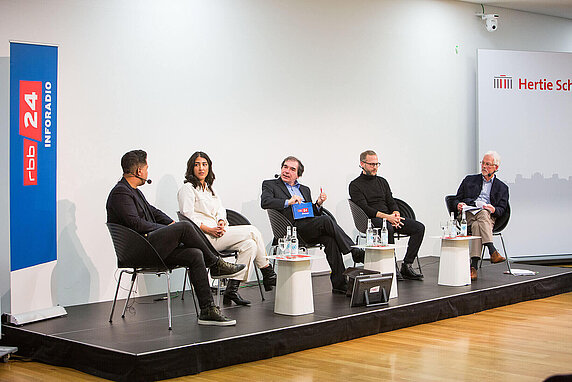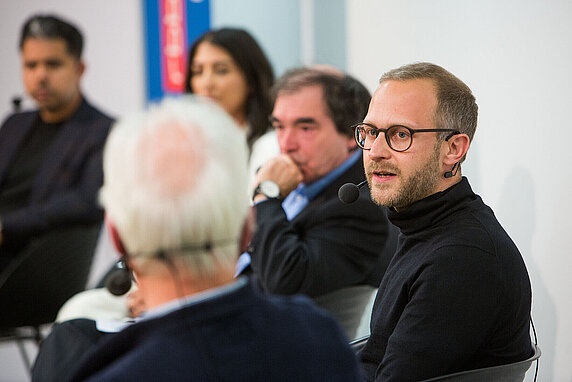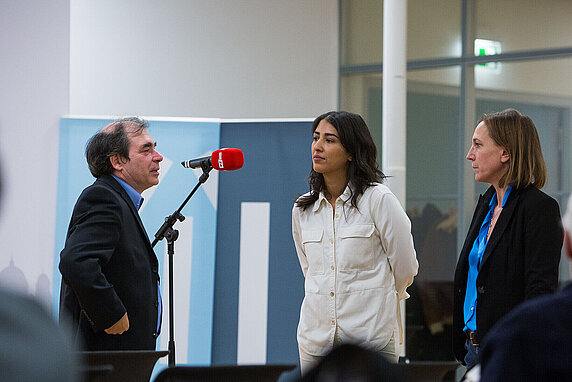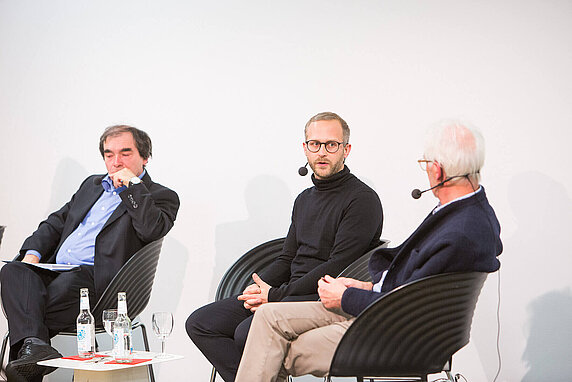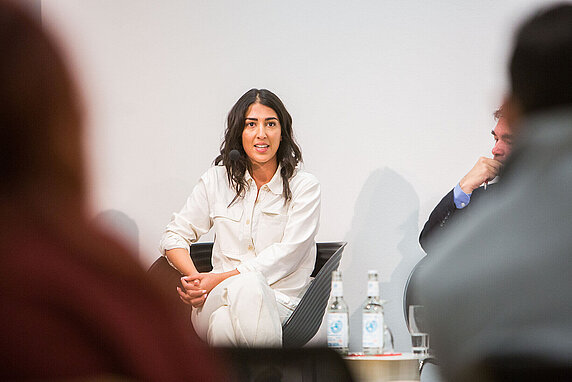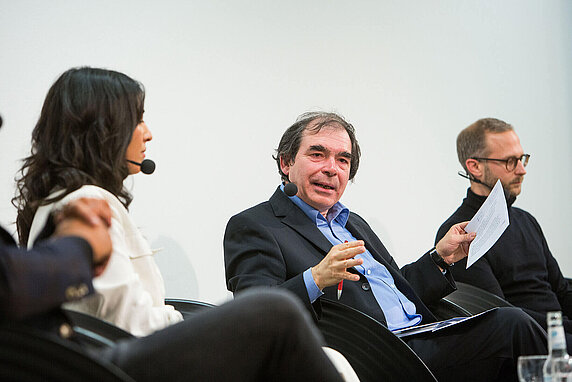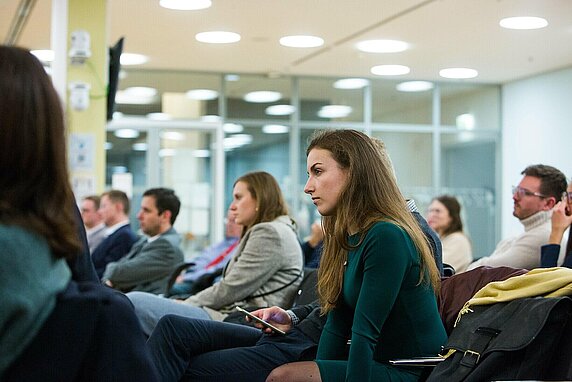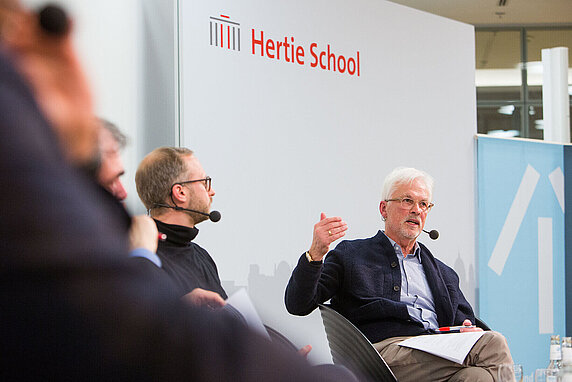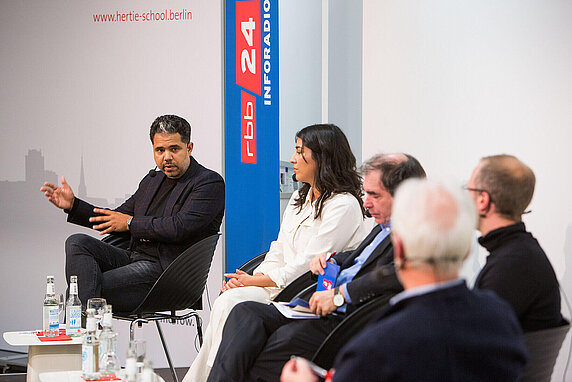Postdoctoral researcher Dr Christian Gläßel sees similarities with sports events hosted by other authoritarian regimes.
Yesterday was the kick-off of the FIFA World Cup in Qatar. Since the country was chosen to host the event, it has been slammed by media outlets like The Guardian and human rights organisations like Amnesty International, who cite the exploitation of migrant workers, appalling working and living conditions, and a high number of deaths during preparations for the event. Is the criticism directed at Qatar unjustified? On 14 November, the Hertie School hosted an rbb radio broadcast moderated by Harald Asel in which Hertie School Postdoctoral Researcher at the Centre for International Security Dr Christian Gläßel, journalists Benjamin Best and Pune Djalilevand, and corporate consultant Jürgen Hogrefe shared their perspectives on the issue.
According to the panel, the Qatari government’s aim in hosting the World Cup was to show the world that Qatar can host an international sporting event. To present to the world a positive image, Gläßel suspected patterns of repression similar to those found in his latest research on the 1978 World Cup in Argentina – at the time ruled by a military junta – as well as other autocratic countries that had hosted large sporting events. Djalilevand and Best’s experience on the ground in Qatar added to Gläßel’s concern.
Disagreement on extent of abuses and whether or not Qatar was culpable
In Hogrefe’s view, the negative attention Qatar has received abroad should be evaluated in a more nuanced way. He argued that Qatar was not comparable with Argentina in 1978 and highlighted that the government had a 92% approval rate among the population. He stressed that the government had worked to improve working conditions and that the problem now was that contractors in the country, including German ones, were not complying with Qatar’s labour laws. In general, he felt Qatar was being brandmarked.
The other participants disputed Hogrefe’s views. They refuted the Qatari government’s approval rate Hogrefe cited as this information was collected in an authoritarian context. As Gläßel underlined, “Qatar is not a free country. We know very little about the actual situation there.” Djalilevand countered Hogrefe’s claim that Qatar does not have political prisoners and was sceptical of improvements in the country’s labour laws, given that the country’s autocratic regime had no trouble in decreeing them.
The event ended with a reference to Gläßel’s research. According to latest findings, boycotting mega sport events was the most effective way to protest the abuses of authoritarian regimes as reduced viewership meant reduced revenue.
The Hertie School is not responsible for any content linked or referred to from these pages. Views expressed by the author/interviewee may not necessarily reflect the views and values of the Hertie School.
More on our expert
-
Christian Gläßel, Postdoctoral Researcher

